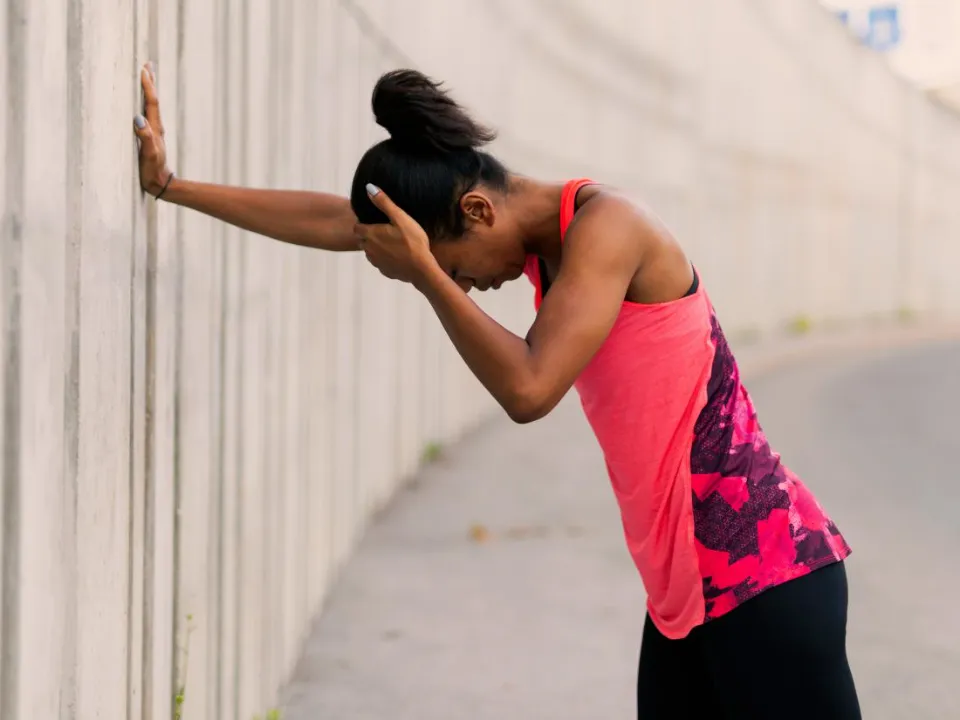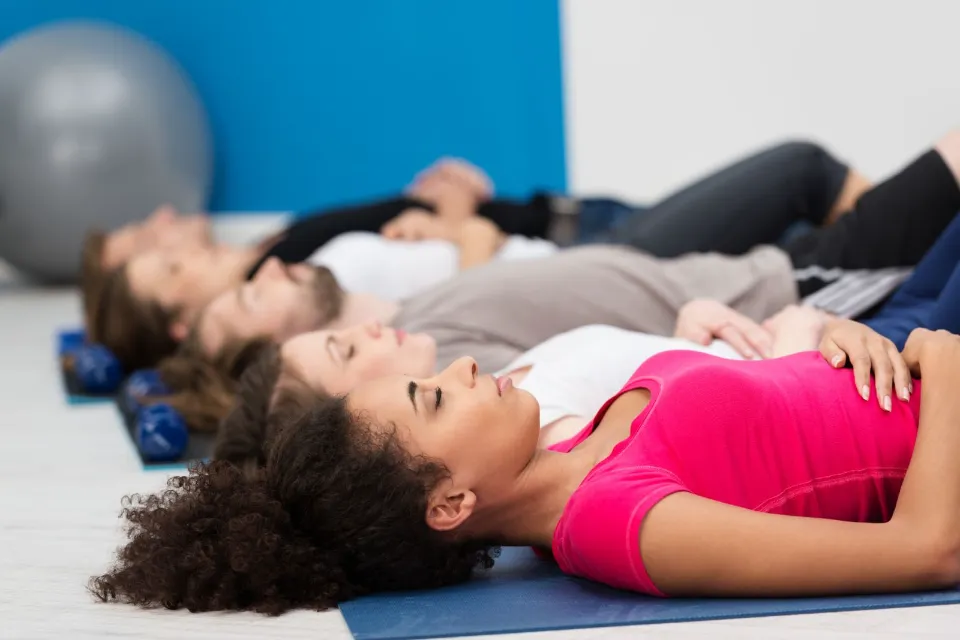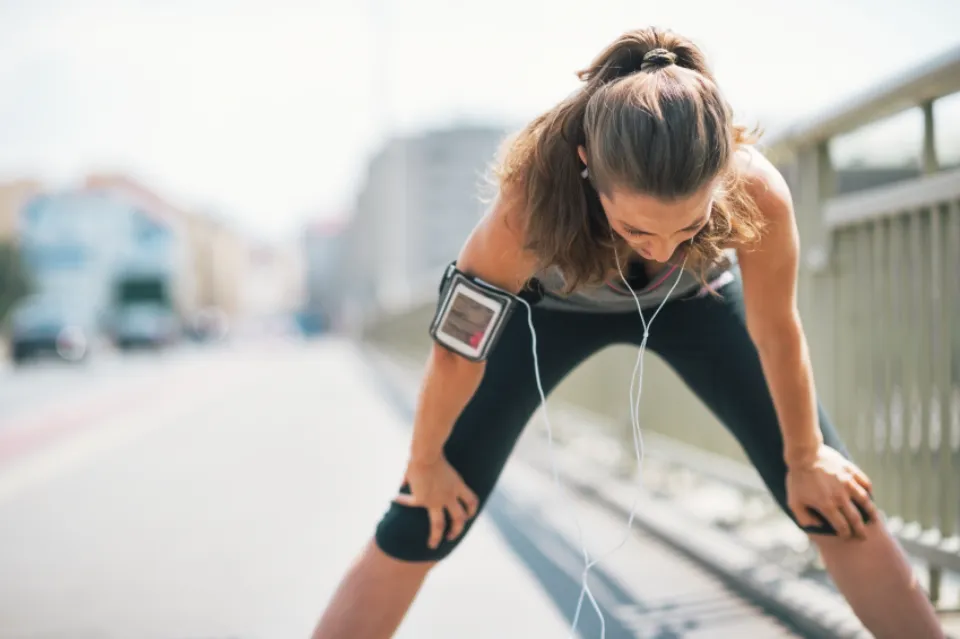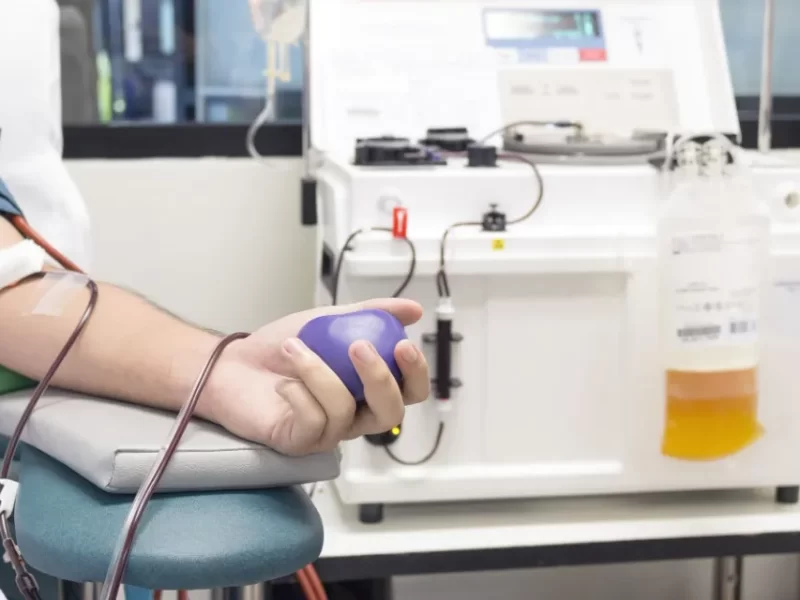The last thing you want is to finish your final weightlifting rep or burpee and feel dizzy and faint. When you experience these symptoms, what exactly is happening, and should you be concerned?
It’s concerning if you pass out while exercising, experience blurred vision, or become lightheaded. Listed below are some potential causes and solutions.
Why Do You Pass Out While Exercising?
Possible reasons for feeling pass out after a workout include:
You’re Overworked
When someone works out too hard, they overexert themselves. Signs of overexertion include:
- passing out
- Feeling faint
- Lightheadedness
- Nausea
- Shortness of breath
- Thirst
- Vomiting

You’re Dehydrated
When this happens, the body becomes dehydrated. Dehydration can affect anyone at any age, though it most frequently occurs in young children and older adults.
Dehydration in healthy adults is most frequently caused by a minor illness or strenuous exercise, especially in warm weather.
Even mild dehydration, which is a loss of just 1–2% of body weight, can cause these symptoms. Thought to be one of the early symptoms of dehydration, many people actually already have dehydration by the time they feel thirsty.
You’re Lack of Oxygen
Some people’s improper breathing during exercise prevents them from consuming enough oxygen to meet their muscles’ needs.
Muscles use more oxygen during exercise than usual. To allow for a greater intake of oxygen, the heart rate and breathing speed up.
Low levels of oxygen in the brain can occur in people who do not breathe deeply or frequently enough. passing out is a sign that the brain requires more oxygen.
Heart Arrhythmia
Unusual heartbeats are known as heart arrhythmias. Depending on the type of arrhythmia, the heart may beat too quickly, too slowly, or irregularly. Arrhythmias can be brought on by a variety of conditions, such as emotional stress and heart conditions.
Exercise can also trigger or worsen a heart arrhythmia, particularly in people who have heart disease.
It is not always the case that a person has a serious problem, even when symptoms are present. But if an arrhythmia persists, it’s crucial to see a doctor.
Low Blood Pressure
The force of the blood pushing up against the artery walls is known as blood pressure. Healthy blood pressure is generally less than 120/80 millimeters of mercury (mm Hg). People who have low blood pressure, or hypotension, will have a reading of less than 90/60 mm Hg.
Within an hour of exercise, blood pressure usually reaches its lowest point. However, some people might observe a more abrupt decline.
Exercise-induced fainting during pregnancy may be caused by hypotension. Dehydration, heart conditions, and the use of specific medications are additional causes.
Low Blood Sugar
When the amount of glucose (sugar) in the blood is extremely low, it is known as hypoglycemia, or low blood sugar.
The body uses sugar as its main source of energy. The muscles consume more glucose than usual when they are working out. Some people consequently experience low blood sugar during or right after physical activity.
If someone hasn’t eaten much before working out, they may be more likely to develop hypoglycemia. People who work out first thing in the morning may frequently experience this issue.
How to Manage Passing Out While Exercising?
For Lack of Oxygen
On the floor, take a seat. Exhale slowly after three full breaths. Continue for three to five minutes, then slowly stand up to leave.
Especially when performing core exercises, many people hold or restrict their breath. Try to strike a balance between keeping your abdominal muscles tight and holding your breath. It will get simpler as you continue to work on it.
For Overworked
Take a moment to calm down, catch your breath, and slow your heart rate if you feel like you might pass out. To rehydrate your exhausted muscles, consume as much water as you can.
In order to avoid doing more harm than good, pay attention to your body. It’s important to push yourself, but do it gradually over time.
Try reducing the intensity of your workouts for the time being. Each week, you can gradually up the intensity until you reach your desired level.
For Lack of Water
Drinking water is a simple solution! Lots of it.
Carrying a bottle of water is not enough; you also need to consume it.
Following predetermined water breaks while exercising may be beneficial. After completing a predetermined number of minutes or rotations, think about getting a drink.
You should also make sure you have access to enough water to keep you hydrated while exercising.
When packing your water supply, consider your access to refill stations, the difficulty of the workout, and the length of the trip.

For Low Blood Sugar
By consuming a small snack, such as a banana, low blood sugar can be quickly and easily treated.
Consider consuming a glass of juice for quicker results. Fructose, a naturally occurring glucose that the body readily absorbs, is a component of juice.
Make sure your body has ample glucose reserves for use during your workouts to prevent blood sugar levels from dropping. This can be accomplished by eating a snack of whole grains or lean proteins an hour or so before working out.
For Low Blood Pressure
Sit down and place your head between your knees if you’re dizzy or feeling faint. By doing this, you can help your brain receive oxygenated blood.
The lowering of blood pressure cannot always be avoided.
Being properly hydrated could be beneficial as dehydration could make the issue worse. Eat well before working out and keep up a healthy diet.
Discuss your symptoms with your doctor if you take any blood pressure medications. They might be able to suggest a different drug or offer other advice.
How to Prevent Passing Out While Exercising?
Here are some quick tips to avoid that dreaded lightheaded feeling during a workout:
- Eat a high-carb snack about an hour before your workout
- Drink water throughout the day and during your workout
- Breathe! Maintain regular breathing and try to synchronize your breathing with your movement
Summary
The feeling of passing out while exercising typically has no serious implications. Usually, it means that the person was overworked or undernourished before working out. If you experience dizziness only when using a treadmill or other similar machine, vertigo may be the cause. Consult a physician if you feel faint frequently or severely.
FAQs
Is It Normal to Pass Out While Working Out?
Pushing too hard during your workout can cause your blood pressure to drop or result in dehydration. You might experience a feeling of faintness or wooziness as a result.
Should I Stop Working Out If I Feel Dizzy?
If you experience dizziness during exercise, stop whatever you are doing and rest. Keep your brows up and your heart out. If an hour has passed and the dizziness has not subsided despite drinking fluids or eating something, see a doctor.



